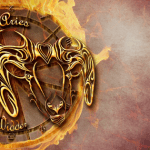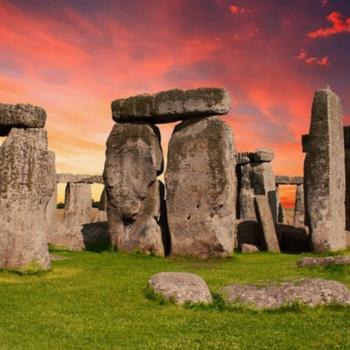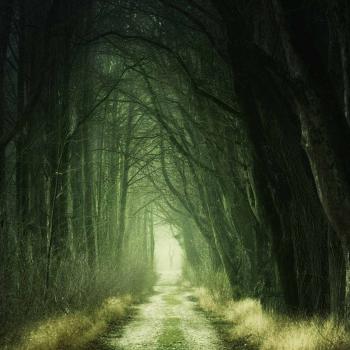I don’t have a lot of experience celebrating Ostara. Growing up in a Catholic household, this time of year was always about Easter. The community gathering was a church gathering, while family time contained elements that could be considered pagan. My mother created Easter baskets filled to the brim with candy and hid them overnight for each of us to find in the morning, and when we were very small we participated in Easter egg hunts.
Memories of these celebrations consist of hazy images of Easter Sunday, forgotten sermons in uncomfortable pews where you were required to exercise to stay awake (all that genuflecting). I’ll never forget sitting in the back seat of the car on the way home with my brother eating the jelly beans we got from the priest. My brother’s favorite were black licorice. “I’m eating my sins,” he’d say.
Ostara is the Spirit of Spring
When I left church and the beliefs associated with it behind not a lot changed in my family dynamic. Easter dinners continued, and still do. Often it is community that makes the celebration of a holiday special. I’ve been solitary in my spiritual practice my entire life. No matter who I’ve been in relationship with or around, my beliefs were not shared or indulged in the same way. My personal observances were always private, even amidst the celebrations happening around me. I’ve never been one for reconstructionism, either. I don’t feel a need to reclaim any ancient celebratory rituals. Ostara means something different now in this time and place.
In my life today, Ostara begins when I feel the spirit of spring return on the air. The equinox itself falls right before my birthday, which is a Saturnian time in the cycle of a year for me, and Ostara always carries the energy of promise, and the lesson of patience. I’m almost always faced with the energetic paradox of “hurry up and wait.” Saturn demands submission while what hasn’t been working breaks down entirely, and Ostara paints pictures of new possibilities in the ashes. Historically, this time of year finds me sorting through the difficulties on my doorstep, and this year is no different.
Ostara is About Movement and Pleasure
I have learned amidst all the pain and possibility that Ostara is about inviting movement and pleasure into my life in a new way. It’s about exploring the deeply sensual and connected energy of Eros. It is the warm sun on my face. It is the scent of a spring, the bubbling up of creativity. I always enjoy a reason to celebrate, but this time of year holds no specific traditions for me, only a whisper of where I need to turn and what I need to do for my soul to align with the spirit of the season.
This year I find myself fully aware of how tired I am of the metaphor of the seed and the platitudes regarding fertility. They fall flat to me while we live in a culture that denies and suppresses the power of the feminine, where the main narrative about women is that we are not to be trusted or valued, and the main narrative regarding the earth is about sucking dry her abundance, abusing her gifts, and giving nothing back.
Ostar and Fertility Symbolism
Fertility has become a sterile concept of reproduction rather than the beautifully abundant, flowing generosity springing forth from the keepers of life that nurtures all. A seed is now a metaphor for reaping what is sown rather than the very real kernel of life and spirit that it is. The focus on reaping what we sow is all about results, and it robs us of the joy of life that exists for its own sake in between the sowing and the reaping.
So I don’t have any fun rituals to suggest to you. I’ll likely be spending the equinox in a hot bath with a good book because it’s what I need. But if nothing else, we can take this time to reflect and re-examine how reciprocity, gratitude, and nurturing factor into our lives and our connections with the earth and with others. We can examine how we add to the warped narratives that permeate our culture, and discover what steps we can take to disentangle from them. We can always begin a new and better narrative. That is the promise of Ostara.
About the Author
Jessica Jascha is a Clinical Herbalist, Intuitive Consultant and writer in Minnesota. She also writes for Witch Way Magazine. She owns Jascha Botanicals and Owl in the Oak Tarot where she gives readings, teaches ritual, and provides holistic consultations. You can find her on Facebook.
featured image via pixabay
















